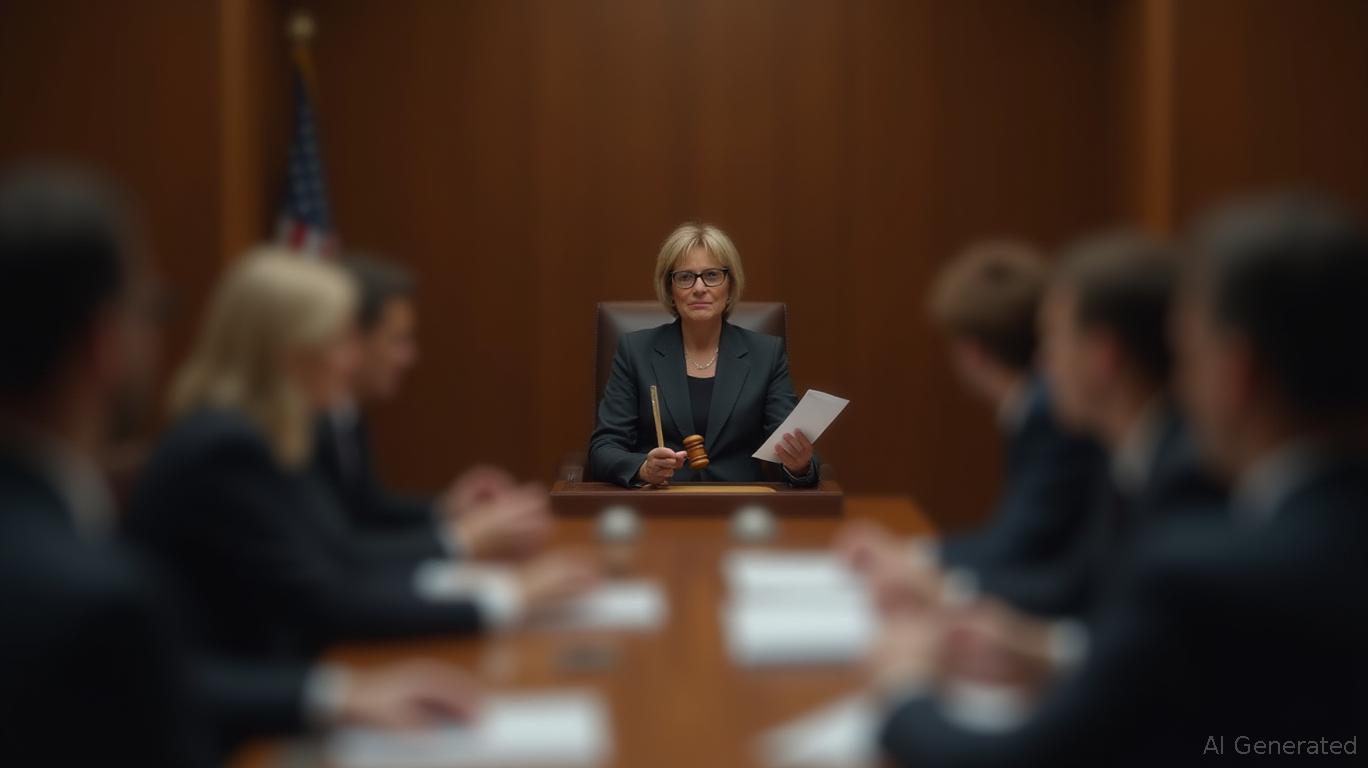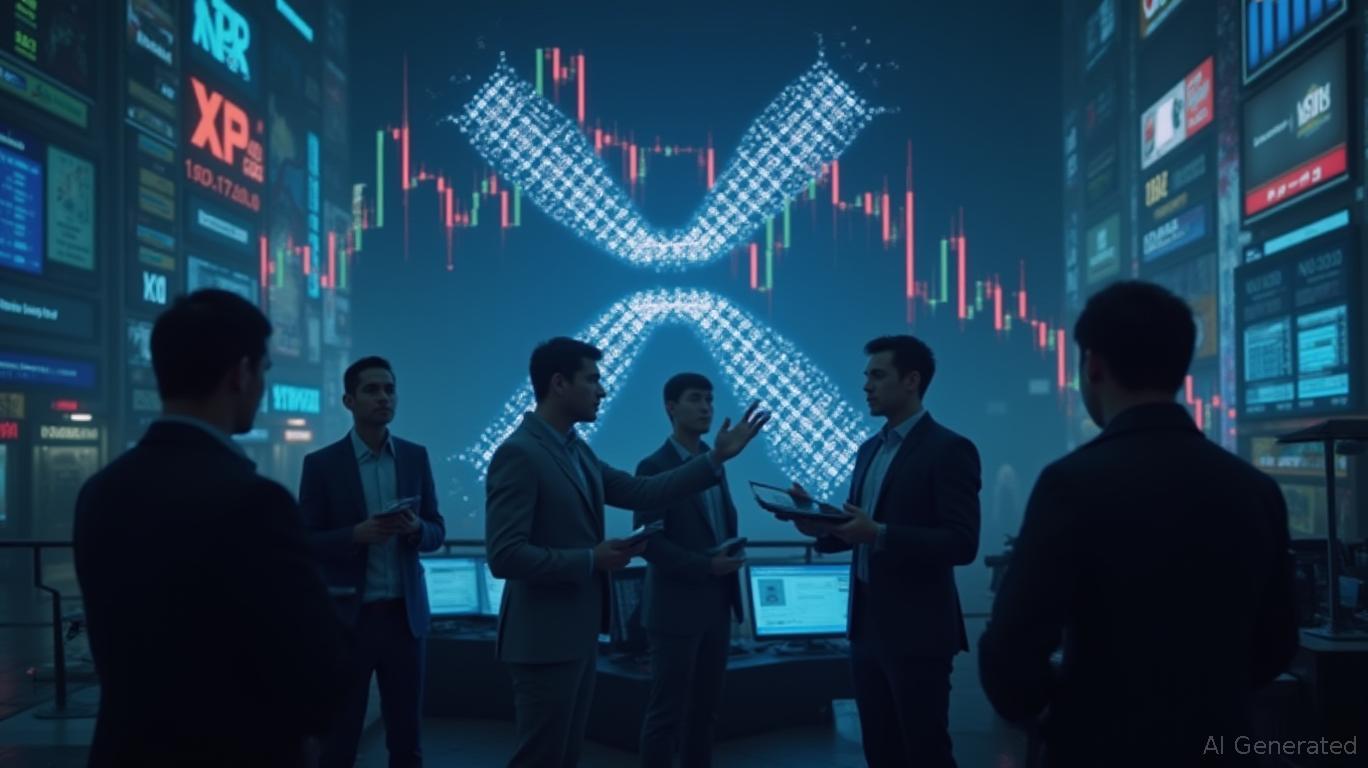Digital Property, Tangible Rights: Court Recognizes Legal Ownership of Cryptocurrency
- India's Madras High Court ruled cryptocurrency as legal property, reshaping digital asset regulations. - The decision emerged from a WazirX hack case, protecting XRP tokens from loss-sharing under Indian jurisdiction. - Citing global precedents, the court emphasized crypto's transferability and private-key governance under tax laws. - Experts praise the judgment for strengthening consumer rights but highlight fragmented regulatory gaps in India. - The ruling pressures policymakers to balance innovation w
The Madras High Court has issued a significant judgment, officially classifying cryptocurrency as property under Indian legislation—a move that could have far-reaching effects on the country's digital asset laws and regulations. Justice N. Anand Venkatesh stated that, despite their intangible nature, cryptocurrencies meet the criteria for property, meaning they can be owned, transferred, and managed in trust, as the
This ruling affirms the court’s authority over crypto assets held within India, dismissing WazirX’s claim that Singapore’s arbitration rules should prevent Indian courts from intervening. Justice Venkatesh referenced a 2021 Supreme Court case confirming that assets situated in India are subject to local judicial protection, as reported by crypto.news. The judgment also made clear that tokens like XRP, which differ from the stolen ERC-20 tokens, are separate assets, thereby rejecting arguments that the investor should bear losses from the hack, as outlined in the WazirX decision coverage.

Legal professionals and industry stakeholders have praised the verdict as a crucial development for India’s crypto legal framework. Sudhakar Lakshmanaraja from Digital South Trust commented that the decision enhances consumer rights and sets the stage for more robust regulations, according to Yahoo Finance’s report on the WazirX case. Giottus CEO Vikram Subburaj described the ruling as an indication that India’s technology sector will be held to “rigorous standards of oversight and protection.” The court’s reference to international cases from New Zealand, the UK, Singapore, and the U.S. further supports the global movement toward recognizing crypto as property, as noted in the crypto.news analysis.
This decision has major consequences for taxation, inheritance, and contract enforcement involving digital currencies. By establishing crypto as property, the court has created a basis for settling ownership and custody disputes, especially in scenarios where exchanges act as trustees, as highlighted in the crypto.news report. Nevertheless, India’s regulatory environment remains inconsistent, with heavy taxation but little direction on investor protections or asset security. The judgment now urges lawmakers to develop a comprehensive legal framework that encourages innovation while safeguarding consumers, according to Decrypt.
As the digital asset sector continues to grow, the Madras High Court’s ruling stands as a turning point, securing the rights of crypto owners and setting a standard for future legal cases. With the judiciary increasingly filling regulatory voids, India’s strategy for crypto oversight appears set for significant change.
Disclaimer: The content of this article solely reflects the author's opinion and does not represent the platform in any capacity. This article is not intended to serve as a reference for making investment decisions.
You may also like
Lula Seeks Trade Agreement While Trump Links Tariffs to Bolsonaro Controversy
- Brazil's Lula and Trump agreed to immediate U.S.-Brazil trade negotiations after ASEAN summit talks, with Lula citing Trump's assurance of a swift resolution. - U.S. imposed 50% tariffs on Brazilian imports in August, linking them to Bolsonaro's legal issues, straining relations and disrupting $410B trade surplus. - Brazilian industry groups welcomed dialogue as tariffs raised U.S. prices, while Lula urged U.S. to respect Venezuela's sovereignty during the summit. - Trump hinted at broader regional deals

Solana News Update: BlockDAG's $430 Million Presale and DAG-PoW Technology Face Setbacks, Pending Listings
- BlockDAG's $430M presale and DAG-PoW tech position it as a top crypto contender with 15,000 TPS scalability. - DeepSnitch AI's $460K raise and AI-powered trading tools target retail investors with meme-friendly marketing. - Solana gains institutional traction via Fidelity listing but faces regulatory risks and competition from newer layer-1s. - BlockDAG's Binance AMA and delayed launch raise skepticism despite CertiK audits and F1 team partnerships. - Market uncertainty persists as unverified exchange li

XRP News Today: Major Investors Shift Capital to Lucrative Presales Amid Declining XRP Performance
- Institutional and retail investors shift capital from XRP/Chainlink to high-growth presales like LivLive, which raised $2M with 1000x ROI potential. - LivLive's AR-wearable blockchain ecosystem (Stage 1 at $0.02/token) and SPOOKY40 bonus drive its "best presale of 2023" status alongside $2.5M Treasure Vault incentives. - BlockchainFX ($BFX) and Snorter Bot (SNORT) join the trend with $10M/$5.6M presale targets, while BNB whales reallocate funds to projects like AI-powered DeFi hub Blazpay ($BLAZ). - Anal

Bitcoin News Update: BlackRock Offloads, Grayscale Acquires: Diverging Approaches in Crypto ETFs
- BlackRock transferred $430 million in Bitcoin and Ethereum to Coinbase Prime, linked to ETF redemptions amid crypto market volatility. - Grayscale deposited $138 million in crypto assets into Coinbase Prime, contrasting BlackRock's outflows and signaling divergent institutional strategies. - ETF flows show BlackRock's Bitcoin Trust (IBIT) absorbing 679.88 Bitcoin inflows while Grayscale's GBTC faced 522.85 Bitcoin outflows. - Market pressures persist as Bitcoin hovers near $108,000 and Ethereum remains b
